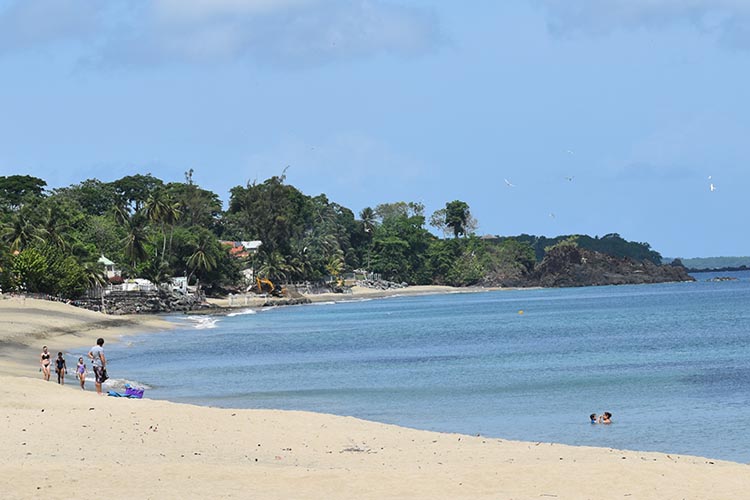
By DIVE Staff
A British tourist is reported to be in a ‘stable condition’ in intensive care after being severely injured during a highly unusual shark attack off the Caribbean island of Tobago.
Peter Smith, 64, was standing in waist-deep water just 10 metres from the shore of Turtle Beach, Courland Bay, when he was reportedly attacked by a bull shark on the morning of Friday, 27 April. Mr Smith suffered serious injuries ‘to his left arm and leg, puncture wounds to the abdomen and injuries to his right hand,’ and is currently receiving treatment in Tobago’s Scarborough General Hospital.
Farley Augustine, chief secretary of Tobago’s House of Assembly – the island’s governing body – said that the bull shark was estimated to be 8-10 ft (2.4-3m) long and 2ft (0.6m) wide. Eyewitness Orion Jakerov described how other bathers tried to fight the shark at is was attacking Mr Smith.
‘I don’t think they saw it,’ said Mr Jakerov in an interview with local broadcaster, TTT Live, posted on X. ‘They were about waist height in the water so they weren’t out of their depth. I think their backs were turned and they were just kind of lounging around. Nobody saw the shark coming.
‘Even while the shark was around and doing the attack,’ said Jakerov, ‘the other people were in the water and physically trying to fight off the shark.’
The surrounding beaches were closed following the attack and drones were dispatched to monitor the surrounding waters. A bounty of US$10,000 was offered by the House of Assembly for ‘the successful capture of the shark involved’, although this was retracted shortly afterwards.
Mr Smith’s wife, Jo, said that as of 9am on Sunday morning, her husband was ‘aware of what is happening and able to communicate a little, although he is still under strong medication.’
The incident is highly unusual as bull sharks are very rarely seen around Tobago. Blacktip reef sharks, Caribbean reef sharks, and nurse sharks are most commonly sighted, with occasional visits from tiger sharks and great hammerheads. Since 1815, just five shark-biting incidents around both Tobago and its much larger neighbour, Trinidad, are logged in the Global Shark Attack File (GSAF), three of which were unprovoked and only one fatal (in 1815).
Bull sharks – classed as ‘Vulnerable’ to extinction on the IUCN Red List of Threatened Species – are known to be aggressive, and their ability to tolerate freshwater brings them into closer proximity with humans than most other species of large shark. Nevertheless, attacks – especially unprovoked – are extremely rare, with just 164 incidents (26 fatal) listed on the GSAF since 1963, (although the figure is likely higher due to underreporting from developed nations).
A spokesperson for the Tobago Division of Tourism, Culture, Antiquities and Transportation said that the attack was ‘a very unusual occurrence’.
‘Tobago is renowned for its safe and beautiful beaches,’ said the spokesperson. ‘The division would also like to reassure the public that the safety of our visitors is a priority and all expertise are being engaged to ensure safety and manage this situation as best as possible.’


